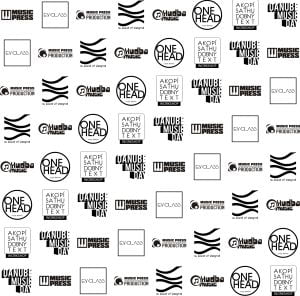
Keď prišla utečenecká kríza od umelcov sa očakával postoj, ktorým by vysvetlili, čím emigrácia obohacuje spoločnosť. On v tom mal jasno. Domnieval sa, že ľudský pohyb je nevyhnutným javom, ktorý sa nedá zastaviť. Pred tromi rokmi skomponoval sónickú operu Fuga Perpetua, ktorá zaznie na záverečnom koncerte festivalu Melos – Étos. Stále sa považuje za hudobníka a gitaristu, no motivujú ho aj iné výrazové prostriedky. Inšpiruje ho najmä možnosť tvoriť medziodborové diela a hudobné podnety spájať v elektroakustických aranžmánoch. Rozprávali sme sa s izraelským hudobníkom, skladateľom a performerom Yuvatalom Avitalom.
switch to english version

Vidím to tak, že emigrácia nie je výsadou ani privilégiom, alebo základným ľudským právom, ale prirodzeným javom starým ako samo ľudstvo, zdravým mechanizmom v kultúre a spoločnosti. Aj keď si uvedomujem, že emigrovať je prirodzeným stavom bytia, byť utečencom je veľmi špecifická forma emigrácie. Utečenec je veľmi definovaný štátom, v ktorom niekto opustí svoj domov, aby unikol hmatateľnému životnému nebezpečenstvu a nezastaví sa, kým nenájde nový druh stability.

Fuga Perpetua sa hráva v mnohých rozličných krajinách – v Izraeli, Taliansku, Anglicku a Nemecku. Musím povedať, že jej prijatie bolo vždy veľmi silné a veľmi pozitívne, možno preto, že nejde o didaktickú prácu (nesnažím sa nikoho vzdelávať), ale ide o zdieľanie univerzálnych ľudských stavov a archetypov, ktoré sú relevantné pre nás všetkých. Keď v divadle sledujeme hru, ako je Shakespearov Kráľ Lear, nerobíme to v záujme o ten subjekt (aristokracia britského stredovekého režimu), ale vidíme samých seba skrz charaktery protagonistov z tohto diela. Myslím si, že Fuga Perpetua nie je operou iba o utečencoch, ale s utečencami, ktorých témy ako materstvo, cesta, bolesť, nebezpečenstvo, nádej, strach, vytvárajú situáciu, do ktorej sa tiež vcítime prostredníctvom protagonistov tohto umeleckého diela.

V kompozícii je niekoľko epizód, ktoré sú nazvané ako Corsa Perpetua: čo znamená beh pre váš život. Chcel som nájsť spôsob, aby samotná partitúra dosiahla prenos ohromnej drámy a ťažkosťami, ktoré sú spojené s témou azylových domov. Používam tam nereálne označenia tempa, ktoré sú na hranici interpretácie, takže boj samotného hudobníka sa stáva súčasťou umeleckého diela.

Používanie elektroniky na vyvolanie hlasov utečencov hovoriacich v mnohých rozličných jazykoch má dualitu: z jednej strany, pomocou pohlcujúceho zvukového systému (The Mobile Sound Theatre) ich počujeme medzi nami, čím bola vytvorená určitá dôvernosť a intímnosť. Na druhej strane priepasť jazykov a medzera v kontexte vytvára krízu v komunikácii. Myslím si, že toto dielo je vytvorené na rozličných úrovniach storytellingu, ale žiadna z nich nie je verbálna. Zameriavam sa na vytvorenie empatického storytellingu zrozumiteľného pre všetkých.

V častiach árie, kde môžeme počuť utečencov spievať, som použil odlišné prístupy „dialógu“ medzi ansámblom a videom. Jedným z prístupov bolo ticho ansámblu; druhým vytvorenie dronov, treťou možnosťou vrstvenie tónov a zvukových textúr – akýsi oblak okolo piesne.

Verím, že existuje veľa spôsobov, ako rozprávať príbehy. Môžu byť rozprávané gestami, mlčiacou tvárou, ktorá sa na vás pozerá. Príbehy sa dajú rozprávať zvukom a farbami. Vo Fuge Perpetua je toľko vrstiev storytellingu vo veľmi odlišných médiách, aby sa vyhlo iba jednému slovnému rozprávaniu. Domnievam sa, že už bolo všetko povedané, napísané a vyrozprávané o problematike utečeneckej krízy, takže vyhnúť sa naratívnemu rozprávaniu príbehov bolo pre mňa prirodzenou cestou, ako postupovať. Vo všeobecnosti nevylučujem slovné rozprávanie príbehov a samozrejme ani písané slovo. Čítanie je jednou z mojich najúprimnejších a najhlbších vášni už od detstva. Ale na javisku môže mať ticho občas silnejší účinok než samotné slová.

Myšlienka Mobile Sound Theatre spočíva v tom, že zvuk v priestore môže produkovať nielen štrukturálny abstraktný element, ale taktiež prenášať emocionálny stav mysle, najmä ak je spojený s hlasmi. Spolu s Tychonasom Michailidisom, v tom čase v učebni konzervatória v Birminghame, sme diskutovali o výzve, v ktorej by mohli byť hlasy toho, ktorý uteká, sedí atď. Použijúc pomerne zložitý algoritmus, hlasy križujú cez publikum a v tomto zmysle vytvárajú významovú skúsenosť nielen prostredníctvom ich zvuku a spracovania, ale tiež podľa ich pohybového správania.

V súčasnosti sa téma utečencov stáva stále kontroverznejšou v európskych a západných krajinách. Kým v Taliansku existovali (a stále existujú) pozoruhodné príklady prijatia utečencov, ale ako viete len pred pár mesiacmi si Taliansko zvolilo extrémne pravicové hnutie, ktoré riadi vládu, aby bojovala proti utečencom, ako proti najhoršej hrozbe národa. Mnoho krajín už používa strach z cudzincov / iných / odlišnosti a xenofóbiu ako formu úteku, obhajoby a stratégiu „scapegoat“ (pozn. redakcie – termín obetný baránok sa zaviedol do politológie a sociológie počas prezidentských volieb v USA). Moja vízia v tejto otázke je pomerne jednoduchá: na planéte je dostatok priestoru pre život a bezpečnosť celého ľudstva. Utečenecká kríza nie je európskou, alebo lokálnou krízou, ale celosvetovou krízou. Dúfam, že opäť vystúpim v Taliansku a v inej krajine, kde ponúknem aj toto dielo ako zážitok: kultúrne, hudobné a ľudské stretnutie.

Gitara je môj prvý nástroj a samozrejme stále aj môj najobľúbenejší. Dnes som definovaný ako multimediálny umelec. Nepoužívam iba partitúru, ale takisto obrazy, zvukové skulptúry, video, fotografie, performance a mnoho ďalších jazykov vyjadrujúcich expresivitu môjho kréda a mojej umeleckej identity. V tak komplexnom diele ako Fuga Perpetua mám viacero rolí nielen len ako autor, ale takisto aj ako performer: Robím veľkú časť živej elektroniky, sprevádzam spevácky zbor Crowd of Refugee choir a režírujem celé predstavenie. Pridanie gitary by už pre mňa bolo príliš náročné na zvládnutie. Stále však milujem gitaru a používam ju zakaždým, keď mám k tomu príležitosť. Od roku 2008 neinterpretujem napísané skladby od ostatných skladateľov, ale iba moje diela, ktoré často kombinujú kompozíciu, improvizáciu a aleatorické časti.

Three Grades of Foreigness je séria videí, zvukových a priestorových inštalácii, ktoré boli prvýkrát prezentované v roku 2017 vo Švajčiarku a potom v roku 2019 v Biennale Ostrale v Drážďanoch. V Septembri sa bude konať tretia časť výstavy a som veľmi pozitívne naladený pokiaľ ide o nový spôsob prezentácie tohto diela. Myslím si, že keď mám tú česť ukázať svoje práce v divadle, ako aj v Biennale, múzeách alebo galériách, tak mi to umožňuje riešiť rôzne problémy rôznych významov. Každé vytvorenie má svoj vlastný kontext. Rád by som v budúcnosti ukázal moju vizuálnu stránku aj na Slovensku (smiech).

I see emigration neither a privilege or as a fundamental human rights, but a natural state of humanity, ancient as humanity itself, a healthy mechanism in culture and sociology. While I see being emigrants a natural state of being, being a refugee is a very specific form of migration. A refugee is a very defined legal state in which someone leaves his home in order to escape a tangible life danger, and it won’t stop until it would find a new kind of stability.

Fuga Perpetua has been performed in many different countries – Israel, Italy, England and Germany. I must say acceptance was always very strong, very positive, maybe since it is not didactic work, (I don’t try to educate anybody), but rather to share a universal human states and archetypes which are relevant to us all. When we watch in a theater a play such as Shakespeare’s King Lear we don’t do it of an interest of its subject (the aristocracy of British medieval regime), but are seeing ourselves inside the character of its protagonists (King Lear). I think Fuga Perpetua is an opera not about refugeees but withrefugees, on which the themes as motherhood, journey, pain, danger, hope, fear, create a situation in which we see ourselves through the protagonists of this artwork.

The use of electronic to bring up the voices of refugees speaking in many different languages has a duality: from one side, through the use of an immersive sound system (the Mobile Sound Theatre) we hear them among us, so there is a kind of intimacy created. Form the other side, the gap of languages and the gap of context create a crisis of communication. I think this work is made by many levels of storytelling but none of them is verbal. I aim is to propose an emphatic storytelling comprehensible to all.

In the work there are few episodes which are titled Corsa Perpetua: it means a running for your life. I wanted to find a way in which the score itself achieved the transmission of the immense drama and immense difficulty within it connected to the theme of refuges. I use there nonrealistic tempo marks which are almost on the limit of a performance, so the struggle of the musician themselves become a part of the artwork.

For the aria parts, where you can hear the refugees sings, I used different approaches of ‘dialogue’ between the ensemble and the video. One approach was silence of the ensemble; the second one was a creation of drones; third possibility was create layering of tonalities and of sound textures – a kind of cloud around the song.

I believe there are many ways to tell stories. They can be tell by gestures, by a silent face looking at you. Stories can be told by sound, colors. In Fuga Perpetua there are so many layers of storytelling in very different mediums, avoiding the verbal one. I believe there is so much that has been told, written and spoken about the issue of refugees crisis, that for me to avoid narrative storytelling was just a natural way of proceeding as an artist. Generally speaking, I do not exclude the verbal storytelling and of course not the written word. Reading is one of my most consistent and deepest passion since I was a child. But on stage sometimes the silence can be even stronger than the words themselves.

The idea behind the Mobile Sound Theatre is that sound in space can produce not only a structural abstract element but also transmits an emotional state of mind, especially when is connected to voices. Together with Tychonas Michailidis, at that time in Birmingham conservatory lab, we discussed of the challenge in which voices could be of the one of that are running away, sitting, etc. Using quite a complex algorithm, the voices across the public and in that sense create a meaningful experience not only through their sound and elaboration but also according their movement behaviour.

Nowadays the theme of refugees becomes more and more controversial towards European and western countries. While in Italy there were (and there still are) remarkable exemples of acceptance of refugees, as you know, just a few months ago Italy had elected an extreme-right movement heading the government that was fighting against refugees as the worst threat of the nation. Many countries use already the fear of foreigner/other/stranger and xenophobia as a form of escapism and scape-goat strategy. My vision on this issue is quite simple: there is enough space in the planet to all mankind live safety. The refugees crisis is not European or local crisis but global crisis. I hope to perform again in Italy and different country, with offering this artwork also as an experience : a cultural, musical and human meeting.

The guitar is my first instrument and my most beloved one for sure. Today I am defined as a multimedia artist. I use not only scores but also paintings, sound sculptures, video, photography, performance, and many other languages to express my credo and my artistic identity. In a work as complex as Fuga Perpetua I have multiple roles not only as its author but also as a performer: I do a big part of the live electronics, I guide the Crowd of Refugee choir and direct the the overall staging. Adding to it also the guitar was and will be a little bit too much to handle. But I still love the guitar and use it every time I have a chance to. Starting from 2008 I don’t perform written composition of other composers, but only my works which are often combining composition, improvisation and aleatoric parts.

Three Grades of Foreigness is a series of videos, sound and materic installations which was presented first in Switzerland in 2017 and then in 2019 at Biennale Ostrale in Dresden. There will be a third part of the exhibition presented this September and I am very positive about the new way to present this artwork. I think the privilege to show my work both in theater and in Biennale, museums or gallery allows me the possibility to affront different issue in different meanings. Each creation has his own context. Would be happy to show in Slovakia in the future also my visual arts side 🙂
autor: Daniel Hevier ml. / preklad otázok: Bohdana Hevierová / foto: www.yuvalavital.com








